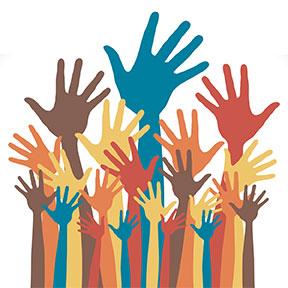‘Ordinary’ Thoughts
On Solidarity and the Fight Against Fascism
by Matt Meyer
“In our struggle against Zionism, racism, and all forms of colonialism and imperialism, there is no place for antisemitism or the vilification of Jews, Palestinians or any people based on their religions, cultures, nationalities, ethnicity or history. At this historic  junction — when the need to struggle for the liberation of Palestine is more vital than ever and the fault lines of capitalist empire are becoming more widely exposed — no anti-oppressive revolution can be built with ultra-right allies or upon foundations friendly to creeping fascism.”
junction — when the need to struggle for the liberation of Palestine is more vital than ever and the fault lines of capitalist empire are becoming more widely exposed — no anti-oppressive revolution can be built with ultra-right allies or upon foundations friendly to creeping fascism.”
So opens the statement Not Quite ‘Ordinary Human Beings’ — Anti-Imperialism and the Anti-Humanist Rhetoric of Gilad Atzmon, which was written by people from across the United States and Canada concerned about the attention within progressive circles being afforded someone openly attacking left-wing anti-Zionist Jews as being essentially the same as any anti-Palestinian Zionist. My own concern was magnified by the fact that this individual was doing so in the name of support for the just Palestinian struggle for peace and freedom. As an activist who has long struggled against racism (in and out of the “movementâ€), against imperialism and colonialism, I found it surprising and disappointing that some of my comrades and colleagues would give extra voice to someone with fairly open ties to positions more normally associated within the right-wing of the political spectrum.
Though it has never been the focus of my own work, I have nonetheless always strongly believed that the struggle against antisemitism must be part of any anti-imperialist, anti-racist program. At the same time, I continue to be enraged at the ways in which the claim of antisemitism has been used to shut down discussion and activism about the righteous and important fight against Zionism. This moment is a particularly important one for Jews to speak out against the racist, imperialist policies of apartheid Israel.
One significant aspect of the statement is that it stands in clear solidarity with the Palestinian people and movement, and solidarity with national liberation struggles is one aspect of work with which I have had many decades of experience. But I am also clear that nationalism itself has had as many negative as positive effects, and that the contemporary Palestinian struggle is described by many not as a “national liberation struggle†per se, but as a fight for equality and justice, including the right to return, an end to Israeli occupation of Palestinian territories, release of political prisoners, and adherence to international human rights law.
In the interests of self determination, I believe it is important for peoples to name and define their own struggles, even if those names may take diverse forms. Indeed, a parallel statement recently issued by Palestinian scholars and activists specifically emphasizes the centrality of self determination as a function of “justice, human dignity, equality, and social, economic, cultural and political rights.” In this sense, as a 21st-century anti-imperialist, I too recognize that globalization is changing both the nature and the face of Empire, and understand that our struggles will have to adapt accordingly.
Many of the originators of the “Not Quite ‘Ordinary Human Beings'” statement, myself very much included, share a great deal of concern about the ways in which fascist thinking and thinkers prey upon certain populist ideas about anti-authoritarianism and aspects of anti-US-governmentism. But the enemy of our enemy is, in this case, very much not our friend. There is no room in our movement for fascists. And while there is no suggestion that Atzmon himself is a fascist, one of the things I have found absolutely most disturbing about Atzmon is the fact that he has done nothing to discourage the ways in which the ultra-right — including some fascists — use his work to promote their agendas.
For me, this is most clear: helping to keep modern-day fascists, neo-Nazis, and the ultra-right far away from left-wing politics and mass progressive organizations — helping to clarify the great confusion which still permeates some parts of the left around certain topics — is an urgent task. We are, all of us, just ordinary human beings;Â building principled unity for collective liberation is a task we must take up together.
Read the full statement and list of signatoriesÂ
Matt Meyer is an educator-activist, based in New York City, and serves as convener of the War Resisters International Africa Working Group. His recent books include Guns and Gandhi in Africa: Pan-African Insights on Nonviolence, Armed Struggle and Liberation (Africa World Press, 2000), the two-volume collection Seeds of New Hope: Pan African Peace Studies for the 21st Century (Africa World Press, 2008, 2010), and Let Freedom Ring: A Collection of Documents from the Movements to Free U. S. Political Prisoners (PM Press, 2008). Meyer is a contributing member of the Editorial Advisory Board for New Clear Vision.
